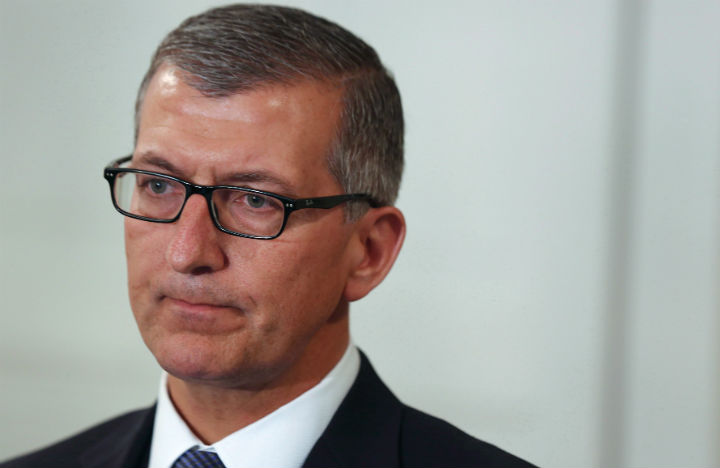OTTAWA – Newfoundland and Labrador’s premier is still at odds with the prime minister over a fishery fund to compensate for Canada’s free trade deal with Europe.

Paul Davis met with Stephen Harper in Ottawa on Friday to discuss a multimillion-dollar fund at the heart of the escalating dispute.
The premier’s position is that federal negotiators agreed to a joint $400-million fund, of which Ottawa would pay $280 million dollars.
He maintains the cash was in exchange for the province giving up minimum processing rules under the Comprehensive Economic and Trade Agreement (CETA) that helped protect fish plant jobs.
See the full story on The West Block on Sunday
In a statement after the meeting, the Prime Minister’s Office said an unspecified amount is available for related losses.
“The Minimum Processing Requirements fund was always intended to compensate hard-working Newfoundlanders and Labradorians for demonstrable losses as a result of the removal of these requirements,” the statement said.
“It was never intended to be a blank cheque.”
Davis has threatened to reconsider his province’s support for CETA if the dispute cannot be worked out.
READ MORE: Canada’s new free-trade deal with EU concludes, ratification up to 2 years away
At issue is a fishery transition fund touted as an unprecedented injection for a struggling industry when it was announced in October 2013 by then-premier Kathy Dunderdale. At the time, she said $280 million would come from Ottawa to pay for marketing, research and to support displaced workers. The province was to cover the rest.
While provincial Liberal Opposition critics blasted it as a sellout, Dunderdale talked up access to lucrative European markets and how the $400-million fund would help make up for any lost jobs.
CETA is popular with groups in the province, such as the Association of Seafood Producers that wants punishing tariffs removed.
But conspicuously absent from the news conference announcing the deal last fall were any federal ministers to share in the joint credit.
READ MORE: CETA today, energy partners tomorrow: A chat with Germany’s ambassador
Davis has accused Ottawa of belatedly trying to put a cash value on those minimum processing requirements and limit its funding commitment to the province.
Davis has not pinned a dollar value on the rules meant to guarantee that a certain amount of seafood is processed in often rural communities before it’s exported. He has talked instead about the cultural worth of the requirements and how dropping them was a major policy shift for his governing Progressive Conservatives.
He stressed on one hand that lifting minimum processing obstacles for the European Union won’t hurt the provincial sector and would offer unfettered access to valuable new markets.
On the other hand, Davis said Ottawa’s $280-million commitment was a key prerequisite for giving up such protections.
Documents tabled in the legislature include an email from Bill Hawkins, then the chief of staff to federal International Trade Minister Ed Fast, dated a week before Dunderdale announced the fishery fund last year.
In it, he refers to a “transitional program of up to $400 million” and said the federal government looked forward to fleshing out details.
The CETA deal with the 28-member European Union was signed earlier this year, but it could be another two years before it’s fully implemented as details and legal text are finalized.
Any refusal by Newfoundland and Labrador to lift minimum processing rules could trigger complaints under the pact which, if upheld, could result in penalties against Canada.
With files from Global News

Comments